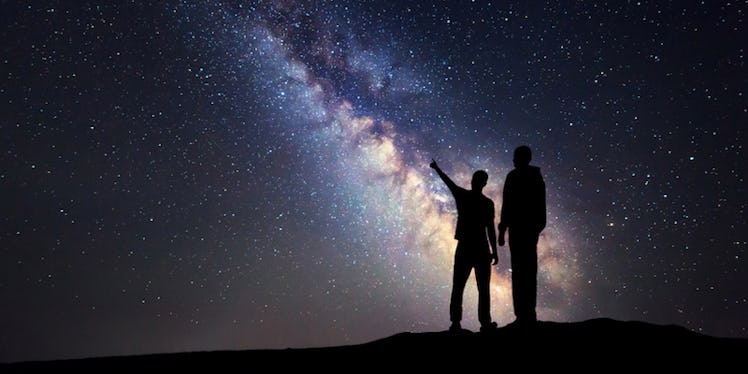
An Incredible Fall Meteor Shower Peaks Tonight, So Get Your Blankets Ready
Get stoked, guys. The sky's going to light up tonight with one of the brightest meteor showers of the year, and you're about to have front row seats.
Personally, I might have a little trouble admiring the beauty that's about to go down (thank you, NYC light pollution), so I'm going to live vicariously through all of you.
Get your cameras ready. I don't want to be disappointed.
The Orionids meteor shower that's about to rock our night sky consists of meteoroids that have broken off of Halley's Comet, according to Science Alert.
Earth travels through these meteors twice a year, and we're in the midst of a shower right now.
The show's supposed to last until November 7, but tonight will be the peak, and you'll be able to see up to 20 meteors per hour soaring through the sky.
Before you hunker down, there are a few tips about stargazing tonight that you should probably be aware of.
The timeframe of the meteor shower's peak is key because staring aimlessly at the night sky for hours upon hours might get a little grueling.
Apparently, the best time to keep your eyes peeled is between 12:31 am and 5:49 am from October 20-22.
You'll also need to determine whether or not your location is ideal for stargazing because light pollution can be a big deterrent from seeing the meteors clearly.
If you aren't sure if you'll be affected, check out the light pollution map that Science Alert provided, and cross your fingers that you're in the clear.
Another factor to take into consideration is the weather, and, unfortunately, it's supposed to be a bit cloudy during the ideal time to watch.
To make matters even more difficult, a waning gibbous moon is predicted to be nice and bright tonight which can possibly become a distraction due to its glare.
Regardless of the possible obstacles, the meteor show is sure to be beautiful and well worth the commitment.
Get your gazing on, and take lots of pictures.
Citations: Science Alert